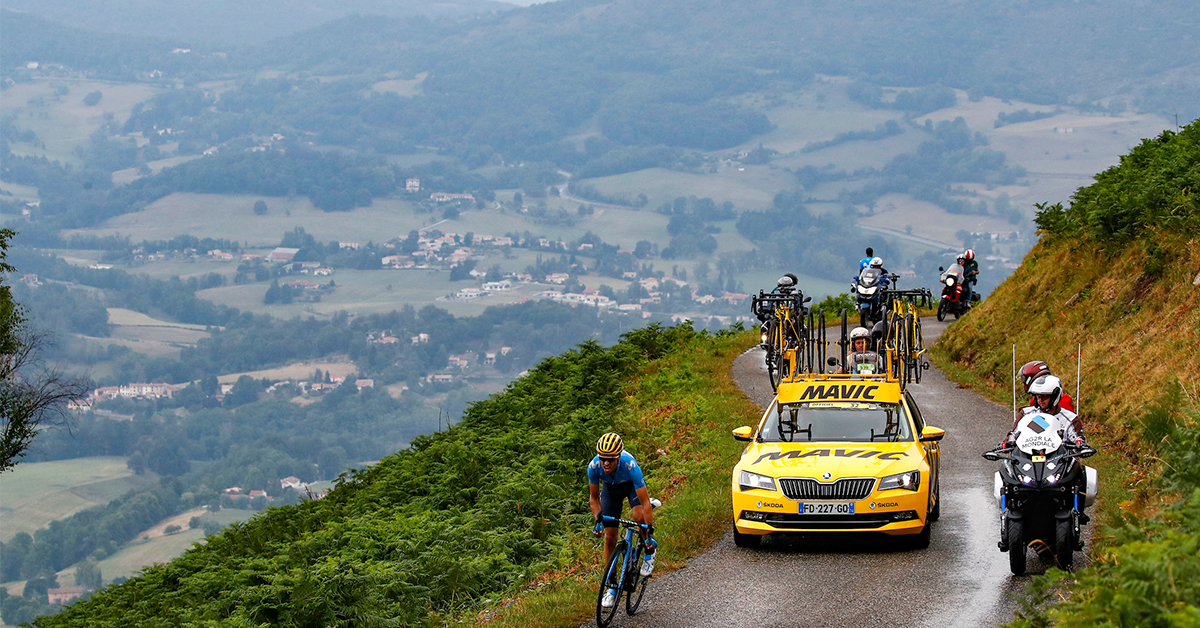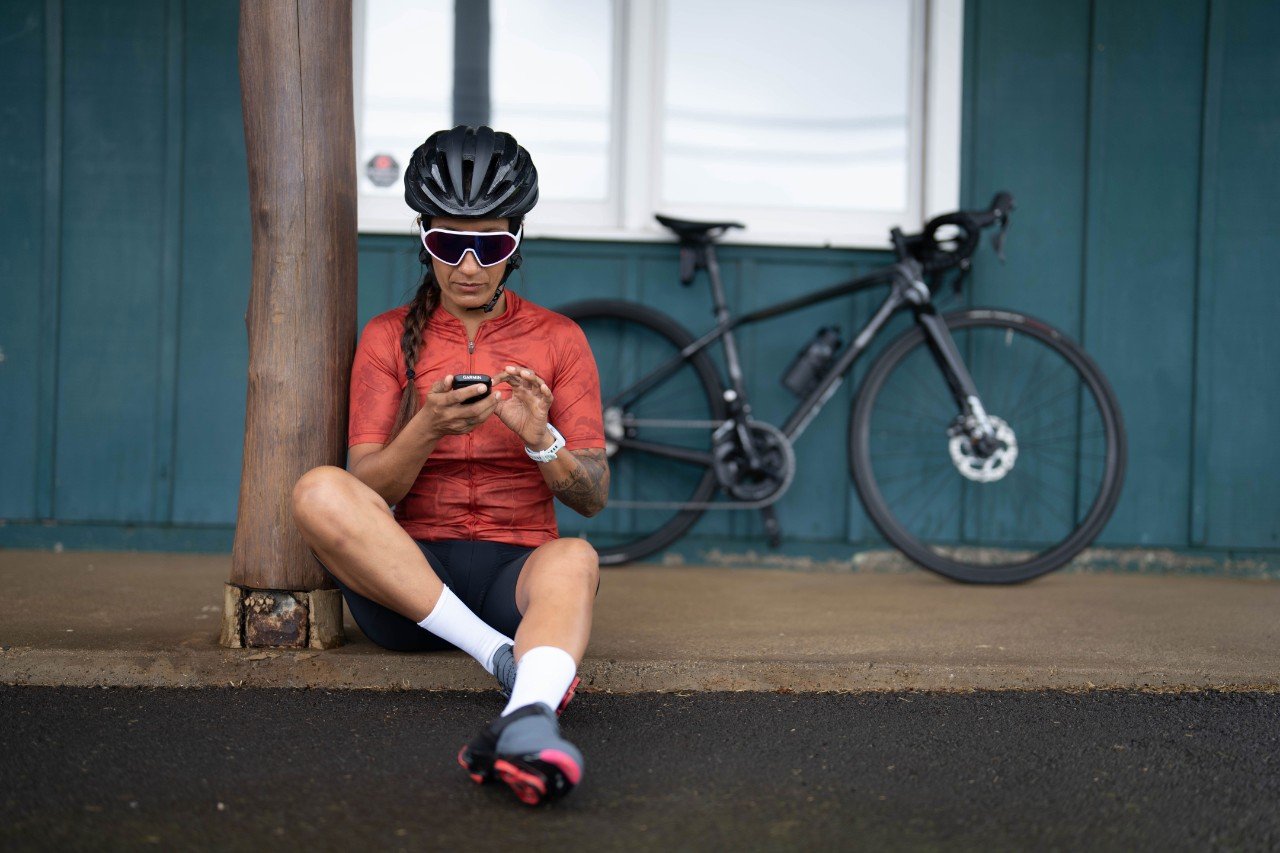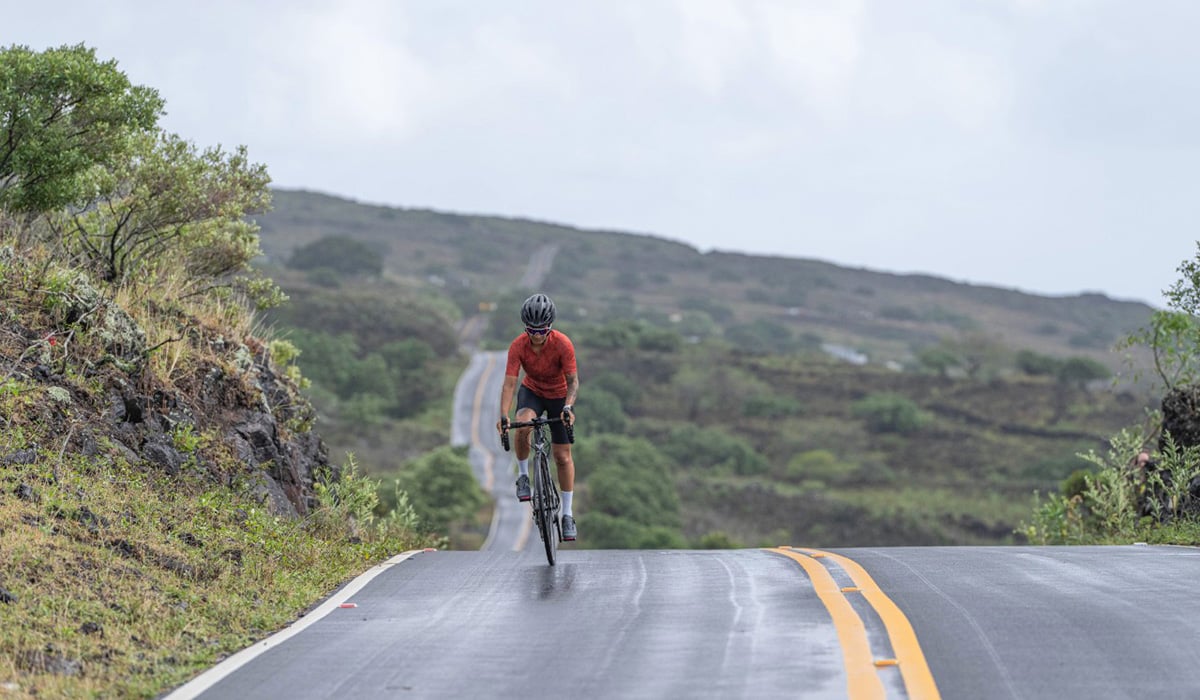
Garmin Cycling Pros Share Tips for Riding in the Mountains
As France’s most notable race nears its conclusion, and the mountain stages become more and more punishing (especially in the current heatwave), we decided to ask two of our Garmin Cycling Pro teams, Movistar and EF Education First Pro Cycling, who have a wealth of experience competing at the highest level, how they tackle the mountains of such a big race after many days of cycling.
When racing through the mountains, Movistar’s goal is to keep everything as consistent as possible; their major plan is to not change from a regular riding day. “The ideal situation is not changing so many things,” said Movistar. “The more you change from a regular day, the worse things happen because the body, legs, muscles and mind are used to working a repetitive routine. If you change them, the parameters will change. It’s just another day in the office.”
The EF Education First Pro Cycling team agrees; they treat the gruesome mountain days the same as any other stage. Focusing on the bike, they try to select the lightest wheels, while focusing on a well-hydrated, well-fed body.
Preparation is key to making sure that everything is as successful as it can be. Everything needs to be right, and with careful recovery steps and ClimbPro (a new feature on the Edge 530 and 830), this can really give the edge on a mountain stage.
ClimbPro helps teams by automatically giving them the gradient or climb profile, which will allow riders to judge their effort, enabling them to go as fast as possible.
When the teams are climbing in the mountains, it’s part of the intensity of the race. When you go out for a ride with a big climb, you could have a whole week to recover. These riders are back up and riding, racing, day after day, meaning recovery in the late afternoon is so absolutely vital. How do they do it?
EF Education First treats every day the same: rest, recovery and refuel; whereas Movistar looks at a more holistic approach: recovery, hydration, nutrition, massage, and relaxation are key factors after a mountain stage.
Movistar looks to recover the body and the mind. “We have to recover the body but also the mind after the stress of a very intense mountain stage. So it’s all about reducing this stress. Normally after the stage, we do not focus on what has happened. It is time to get out of the box. The next morning, we will have time to talk again about the new stage considering what happened yesterday.”
That is an interesting perspective from Movistar. Just as you shouldn’t look at your emails right before bed, Movistar doesn’t talk to their teams about how the stage went — they just focus on what is next and how to get the best out of the future.
As you see the riders tough it out in the final stages of the race, you can understand that there is a lot of focus going on behind the scenes to make sure the riders are in peak performance. Just as an Edge needs charging and a bike needs tweaking, the riders need to pay attention and hit that next climb, hard.




